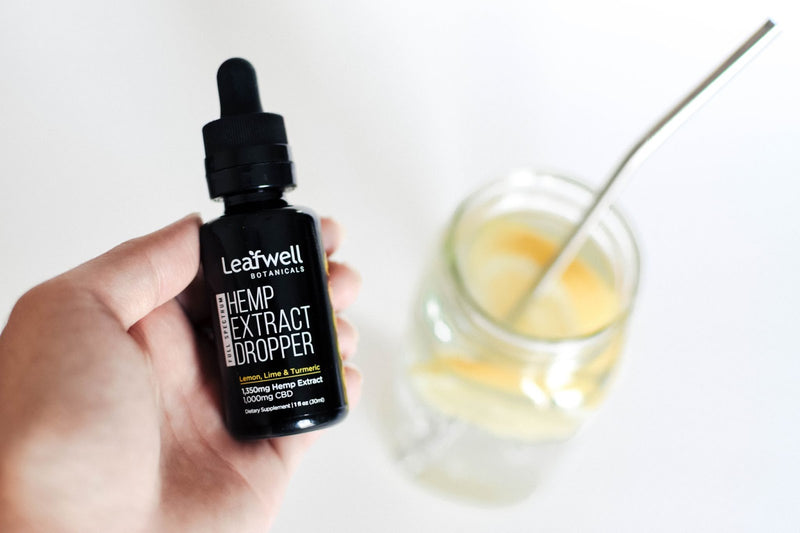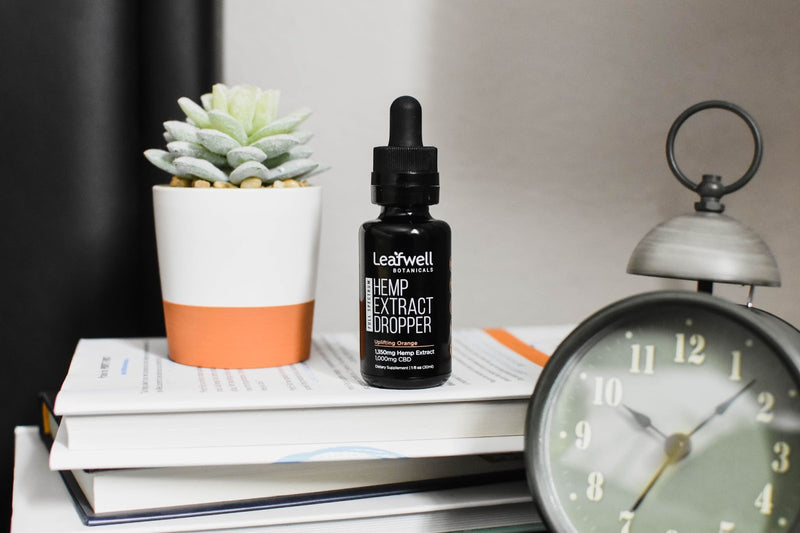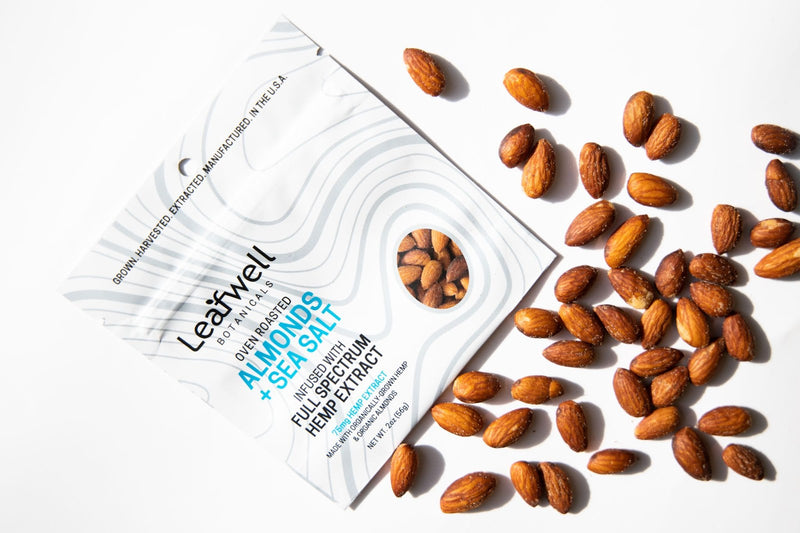What is Brahmi? Health Benefits, Uses, and Interactions

Have you ever heard of nootropics? These supplements have been emerging as a way to promote better cognitive function--or so they say.
How do you know if you can trust a supplement that claims to be able to improve your overall cognitive health? Is that something that is even possible for a supplement to do?
The short answer: yes, if you pick the right one!
One such nootropic is brahmi, also more commonly known as bacopa monnieri. Brahmi has been used as a traditional medicine for many centuries, particularly in India, though only recently it has been gaining attention for the benefits it offers the brain in Western society.
In this article we will go over everything you need to know about brahmi, from its uses to its potential interactions.
Keep reading to find out how nootropic supplements can genuinely take your quality of life to the next level!
What is Brahmi?
Brahmi is a plant that grows in tropical, humid environments, including south/southeast Asia, Madagascar, and the Caribbean. In the United States, you can find brahmi in Hawaii, Florida, and Texas.
Brahmi’s scientific name is bacopa monnieri. You may also see it referred to as the herb of grace, water hyssop, and thyme-leaved gratiola. In this article we will refer to the supplement as brahmi but you may commonly see it labeled as Bacopa on supplements.
Brahmi has been used for many centuries, particularly as part of the Ayurvedic medicine tradition. Originating in India, Ayurvedic medicine is a holistic practice, meaning it believes that your mind, body, and spirit are all interconnected and together inform the state of your overall health. As such, brahmi was used to treat issues involving mental, physical, and spiritual health.
Brahmi belongs to a class of substances called nootropics. These substances get their name from the Greek, meaning “to bend or shape the mind/intellect.” The name comes from this class of substances’ main function, which is to support concentration, decision-making, memory, and basically anything else relating to cognitive function.
All in all, brahmi is used to promote better quality of life.
Top Benefits of Brahmi
As a nootropic supplement, brahmi’s main benefit is the way it supports cognitive function and overall brain performance.
Finally, brahmi is rich in antioxidants. Antioxidants are able to neutralize the damaging effects of oxidative stress, which can accelerate aging and therefore negatively affect brain function.
How is Brahmi Used?
For many years, brahmi was regularly used within the Ayurvedic medicine tradition. This tradition takes a holistic approach to health, meaning it focuses on the “whole” rather than only on specific problem areas. Brahmi would have been used as treatment for anything relating to a person’s physical, mental, and/or spiritual health.
Nowadays, brahmi has two main uses: internal and external. In its oil form, you can use brahmi to support your skin health and even relieve discomfort from sunburn. You can also apply brahmi oil to your scalp to promote better hair quality. In addition to oil, you have the option of using brahmi topically as a paste.
In terms of internal use, you can ingest brahmi as a tablet, powder, or extract. If you are looking to experience the cognitive benefits of brahmi, this is the method of intaking brahmi that you should use, as the topical form is not guaranteed to reach your bloodstream (and thus, your brain).
Finally, you should not use brahmi without consent from your doctor, especially if you’re taking medications, suffer from any medical conditions, or are pregnant . They can determine if other medications you take may interact poorly with brahmi, and they can also warn you of any potential side effects from taking brahmi.
Brahmi: Potential Interactions
As mentioned above, it is in your best interest to talk to your primary care provider before starting to use brahmi, especially if you have other health conditions or take medications. Your doctor can let you know if brahmi may interact with the drugs you already take.
If you take any of the following types of drugs, you should be especially careful when consuming brahmi:
- Thyroid hormone drugs, as brahmi may increase thyroid hormone production
- Anticholinergic drugs (including atropine, scopolamine, and some antidepressants and antihistamines), as the two might limit each other’s effectiveness
- Cholinergic drugs (pilocarpine, donepezil, tacrine, etc.), as you are more likely to experience side effects
- Alzheimer’s treatments (including AChE inhibitors), as this may increase the risk of adverse side effects
If you are unsure whether or not you take one of these types of drugs, or are otherwise unsure of whether or not brahmi will interact with certain medications you take, talk to your doctor.
Brahmi Side Effects
The most common side effects of brahmi are digestive discomfort (including nausea and cramps), fatigue, and dry mouth. It’s also important to consider the ingredients accompanying brahmi. If you use brahmi topically, you may experience some itching or irritation, so always patch test the brahmi oil (like with any other new skin care product) to make sure it agrees with your skin like we discussed in more detail in the hemp oil for skin article.
To reiterate one more time, you should talk to your doctor before taking brahmi, especially if you are taking any medications or suffering from any medical conditions.
Additionally, you should avoid brahmi entirely if you are pregnant or breast-feeding; have obstructions in your gastrointestinal tract or urinary tract; or have a thyroid disorder, bradycardia (slow heart rate), ulcers, or a lung condition.
Top Nootropics: Alternatives to Brahmi
If you take a medication that may interact with brahmi or just generally want to know your options when it comes to nootropics, here are a select few cognition-boosting alternatives to brahmi:
- CBD Oil: In addition to supporting cognitive function, CBD oil can help promote a sense of calm, support emotional balance, and overall support your holistic health. You have a lot of options when it comes to the way you can take CBD oil, too, including tinctures, body creams, and tasty edible products (like our Creamy CBD Peanut Butter!)

-
Omega-3 Fatty Acids: Many people take omega-3s for their heart health, but these powerful fatty acids are also essential to your brain and nerve health, and can even slow the negative effects of aging through their regenerative properties.
-
Green Tea Extract: Green tea extract has been shown to support healthy blood sugar levels, promote weight loss, and aid in exercise recovery.
-
L-Theanine: You can find L-theanine in caffeinated teas, and it is known to boost everything from creativity to alertness.
-
Cacao: Cacao is extracted from the seed of a small evergreen treat and has been shown to improve mood and filled with antioxidants and many other wonderful benefits.
- Panax Ginseng: Similar to ginkgo biloba, panax ginseng is a natural supplement that is rich in antioxidants and supports cognitive performance.
The “right” nootropic for you really depends on your particular needs and health status. If you are looking for products with multipurpose impact, for example, you may want to explore CBD oil due to its soothing qualities or other blended products.
In addition to a supplement, though, it’s important you make certain lifestyle changes to promote optimal cognitive function. These changes may include a well-balanced diet, regular exercise and sleep, and stress reduction. Your supplement will be most effective when paired with a healthy, active lifestyle.
In Conclusion
Brahmi, or bacopa monnieri, has been used for centuries as part of the Ayurvedic medicinal tradition. Nowadays, it is primarily used as a nootropics supplement to support better overall cognitive function.
Other nootropic supplements include CBD oil, Cacao, and L-theanine, among many others.
Each has their own specific advantages, so talk to your doctor & nutritionist about which nootropic supplements may be the most effective for you and fit within your lifestyle!
Sources
7 Emerging Benefits of Bacopa monnieri (Brahmi) (healthline.com)
Bacopa: Uses, Side Effects, Interactions, Dosage, and Warning (webmd.com)
Brahmi Oil: Benefits, Side Effects, Dosage, and Interactions (verywellhealth.com)
The 14 Best Nootropics and Smart Drugs Reviewed (healthline.com)







